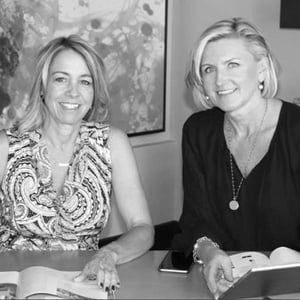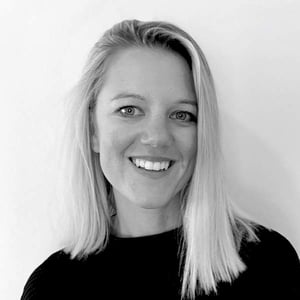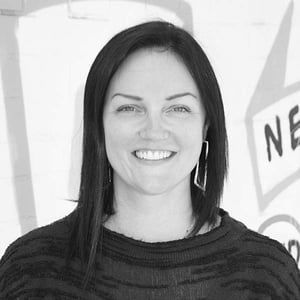What does the workplace look like after COVID-19? We brought together a panel of experts focusing on what to expect in the post-pandemic workplace. Moderated by industry veteran Rick Bartlett, Unisource Solutions, the discussion covers topics including workplace and architectural strategy, occupancy management and workspace optimization.
![]() Download Presentation: Post-Pandemic: The Future of Workplace Strategy slide deck »
Download Presentation: Post-Pandemic: The Future of Workplace Strategy slide deck »
Read below for how each expert shares their insight and vision for the future of workplace strategy.
Ala Sobierajksi & Tammy Kosloff, HuddleHQ
How we react organizationally in the face of a pandemic
-
Initial reaction to pandemic/leveraging the right change management moving forward
-
Returning to the office – how do employers and staff move back into the new post-COVID-19 paradigm? Short term solutions and tools to ease the transition.
-
Long term Corporate Real Estate Impacts
Tammy Kosloff is the Design & Innovation Lead at HuddleHQ, bringing you over 20 years of interior design and workplace programming expertise. Tammy believes that providing an inviting workplace environment increases productivity and people’s overall happiness. She innovates through design. Highly collaborative partner with cross-functional teams on many continents. Develops and delivers creative workplace solutions for companies at all stages of their growth. Career highlights include the largest US workplace implementation, a leading biotech’s NextGen Workplace Program - where Tammy oversaw the total redesign process and organizational change management.
Ala Sobierajski is the Creative Solutions Lead at HuddleHQ. Ala partners with client organizations and the design community to solve complex problems and deliver exceptional workplace environments. Ala is inspired by how design influences organizational effectiveness, and she understands every project has its unique human factors. She listens to you and creates custom solutions. Thought leader who redefines workplace dynamics globally, regionally and locally. Drives concept development through rapid prototyping to find creative solutions for people, places and performance. Career experience includes the delivery of a worldwide biotech NextGen Workplace Program, along with other progressive workplace environments - including laboratory and manufacturing sites for scientific organizations. Trained as an architect in Gdansk University of Technology, Poland
(Read our interview with Ala and Tammy here: Workspace Programming 101: Five Questions with HuddleHQ)
Elizabeth Redmond, CoWorkr
Allowing productivity and engagement to soar in an environment of new workstyles
-
Using real-time data to respond to headcount and sanitary requirements in the workplace.
-
How to use utilization maps to provide for the most effective cleaning standards.
-
Giving your employees access to the right technologies to give them the freedom to find a safe space within the office to work.
Elizabeth Redmond is cofounder & CEO of CoWorkr- a workplace sensors company. She has a background in design, life cycle analysis, and materials consulting. In all of her work, she is most passionate about finding efficiencies in the built environment. At CoWorkr, they are working on helping companies figure out how to use less space while maintaining a dynamic and healthy staff.
Kristi Paulson, Behnisch Architekten
Adapting and adjusting to the physical and psychological manifestations of the not-so-normal
-
Evaluating employee needs through the lens of safety and cleanliness along with empathy and support, with an emphasis on our social and collective environments in the workplace.
-
Looking at adaptability in the workspace to allow for distancing, lower densities, and staggered workdays in phased processes.
-
Office etiquette in communal areas, meeting rooms, and bathrooms.
-
Future building/workspace design – mechanical and material enhancements
-
Human aspects/the need for socialization in the workplace
Kristi Paulson is an architect with 17 years of experience in architecture, interiors, planning, and programming. Project types range from educational, residential and workplace to museums and sports facilities. She joined Behnisch Architekten in 2007 where she led the design of the UC Berkeley Maximino Martinez Commons and the Santa Monica Parking Structure #6, both award winning projects in design, innovation and sustainability. In addition, she led many international design competitions and her leadership was integral in building our Los Angeles office. In 2019, Kristi re-joined Behnisch Architekten to lead the newly opened Los Angeles office.
Outside of Behnisch, Kristi led the design of the new home for the Space Shuttle Endeavour at the California Science Center where it will proudly stand like it did at the Kennedy Space Center launch pad. Most recently she rehabilitated a massive, historic, heavy timber hangar built by Howard Hughes in 1943 and then designed 500,000sf of workspace within the hangar for Google in Playa Vista, CA (aka Google Spruce Goose). Her proven ability to design and lead outstanding projects and work confidently in collaboration with clients is rooted in an architecture where unique and tailored designs are manifested through the relationships and intentions between people and their surroundings.








